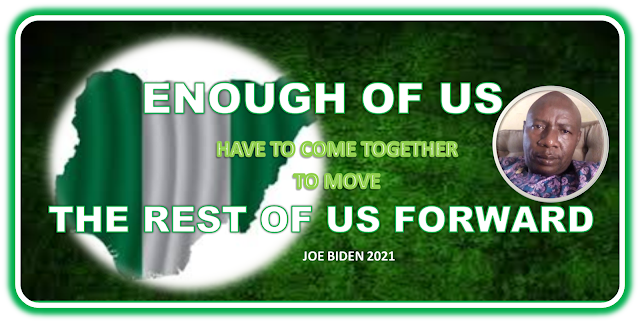ECONOMIC HARDSHIP: ACF SLAMS TINUBU AS LABOUR REJECTS N54,000 MINIMUM WAGE
The National Executive Committee (NEC) of the Arewa Consultative Forum (ACF) has attributed the rising cost of living and economic hardship being experienced by Nigerians to the policies of the President Bola Tinubu administration.
The Forum also expressed concern over the escalation of
insecurity in the northern region, warning that the protracted dimensions of the
problems, if untamed, are harbingers of social chaos.
In a communique read by ACF spokesman, Prof Tukur
Muhammad-Baba, after the NEC meeting in Kaduna on Tuesday, the Forum outlined
some of the immediate causes of the economic problems and social instability
including the removal of fuel subsidy, floating of the Naira, increase in
electricity tariffs and taxes against the seemingly insensitive profligacy in
spendings by public officials.

“The immediate causes of the problems have been policies put
in place by the government over the past months, including but not confined to
removal of subsidies from the prices of petroleum products, floating of the
Naira, and astronomical hike in the cost of poorly supplied electricity,
increasing tariffs and taxes against the seemingly insensitive profligacy in
spendings by public officials, to list a few,” the communique partly read.
As it has severally reiterated in recent public outings, ACF
calls for urgent action and definitive attention, by government at all levels,
to confront rapid decline in living conditions of citizens. The imposition of
new taxes and levies is becoming increasingly too burdensome for ordinary
Nigerians. The need for a roll out of public policy programmes and projects
aimed at addressing low purchasing power challenges is clearly indicated.
“ACF calls on citizens to rally around government and offer
prayers for God Almighty intervention in our various tribulations such as will
translate into a new, prosperous Nigeria where justice, equity, love,
righteousness and hope emerge to replace the current despair and hopelessness.”
In a different dimension, the organised labour had demanded
N615,000 as the new minimum wage, noting that the demand could go higher if the
inflation rate continued to rise.
The organised labour on Tuesday rejected the N54,000 newly
presented by the Nigerian Government as the new minimum wage.
Following the walkout by the Organised Labour comprising of
the Nigeria Labour Congress and the Trade Union Congress during the last
meeting with the Tripartite Committee on Minimum Wage after the proposed
N48,000 as minimum wage by the Federal Government, the government has now upped
it to N54,000.
A highly reliable source within the meeting said “The
Federal Government has now proposed the sum of N54,000,”.
The Director General of Nigeria Employers’ Consultative Assembly (NECA) Mr Adewale Oyerinde admonished union leaders to reconsider their position and return to the negotiation table in the interest of their members and national development.
However, Ajaero justified their decision to abandon the
negotiation, saying, “The government’s proposal of a paltry N48,000 as the
minimum wage does not only insult the sensibilities of Nigerian workers but
also falls significantly short of meeting our needs and aspirations.”
“Though it is worth noting that even the least paid workers
in the private sector receive N78,000 as clearly stated by the OPS,
highlighting the stark disparity between the proposed minimum wage and
prevailing standards further demonstrating the unwillingness of employers and
Government to faithfully negotiate a fair national minimum wage for workers in
Nigeria.’’
He accused the government of failing to provide any
substantiated data to support their offer which exacerbates the situation. This
lack of transparency and good faith undermines the credibility of the
negotiation process and erodes trust between the parties involved
The NLC president noted that the unions remained committed
to fighting for the rights and interests of Nigerian workers.
He also called on the government to reconsider its position and come to the negotiation table with “clear hands that reflect the true value of the contributions made by Nigerian workers to the nation’s development and the objective socioeconomic realities that confront not just Nigerian workers but Nigerians today as a result of the policies of the Federal Government.”
President Tinubu, through Vice President Kashim Shettima, on
January 30, 2024, inaugurated the 37-member Tripartite Committee on Minimum
Wage to come up with a new minimum wage ahead of the expiration of the current
N30,000 wage on April 18.
The panel, whose membership includes federal and state
governments, the private sector, and organised labour has a brief to recommend
a new national minimum wage for the country.
During the panel’s inauguration, Shettima urged the members
to “speedily” reach a resolution and submit their reports early.
“This timely submission is crucial to ensure the emergence
of a new minimum wage,” Shettima said.
In furtherance of its assignment, a zonal public hearing was
held simultaneously on March 7 in Lagos, Kano, Enugu, Akwa Ibom, Adamawa, and
Abuja.
The NLC and the TUC in different states proposed various
figures as a living wage, referencing the current economic crunch and the high
costs of living.
In their different proposals on the minimum wage, the NLC
members in the South-West states demanded N794,000 as the TUC suggested
N447,000.
The panel seems not to be making any headway while Nigerians
continue to languish.
Observers however think neither the Government nor the
representatives of Organised Labour can be trusted and their sincerity suspect.
Another opinion believes wage increase has never been a
solution to economic downturn but worsens the rate of inflation. This, they
say, will not be different.
















Comments